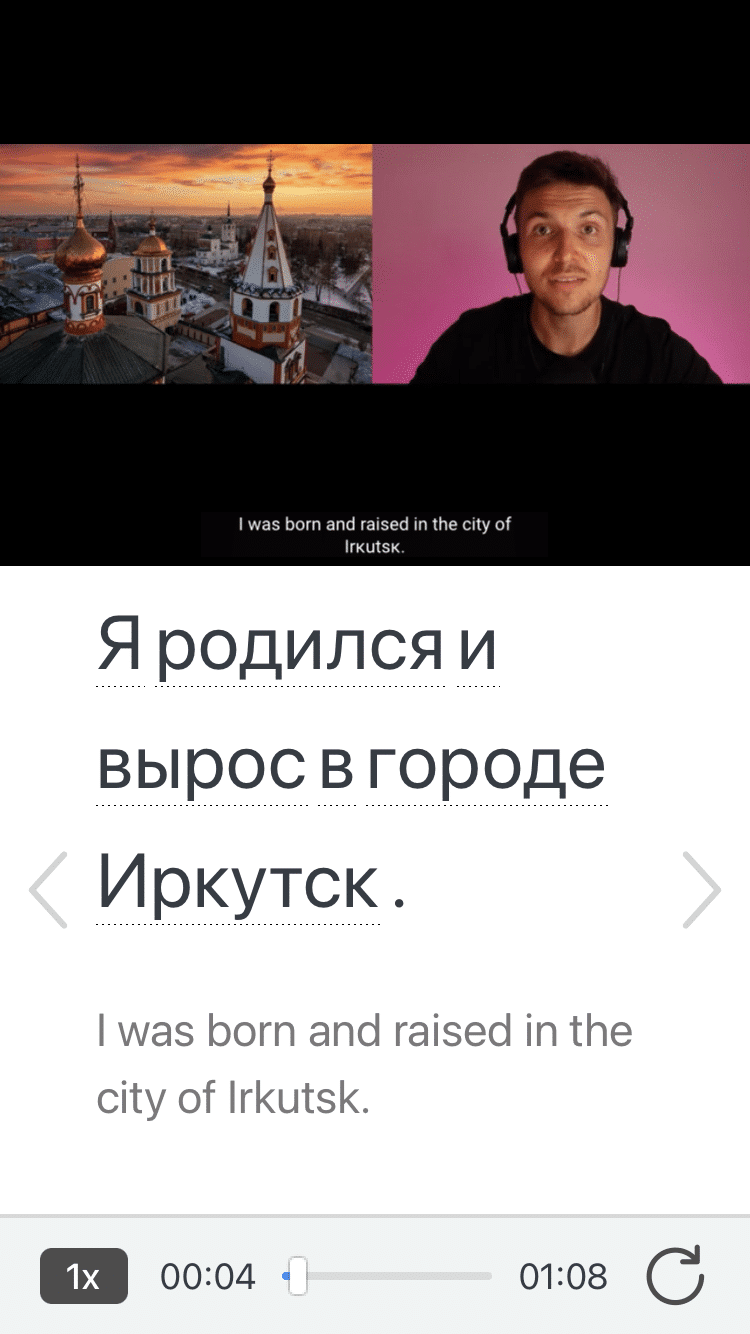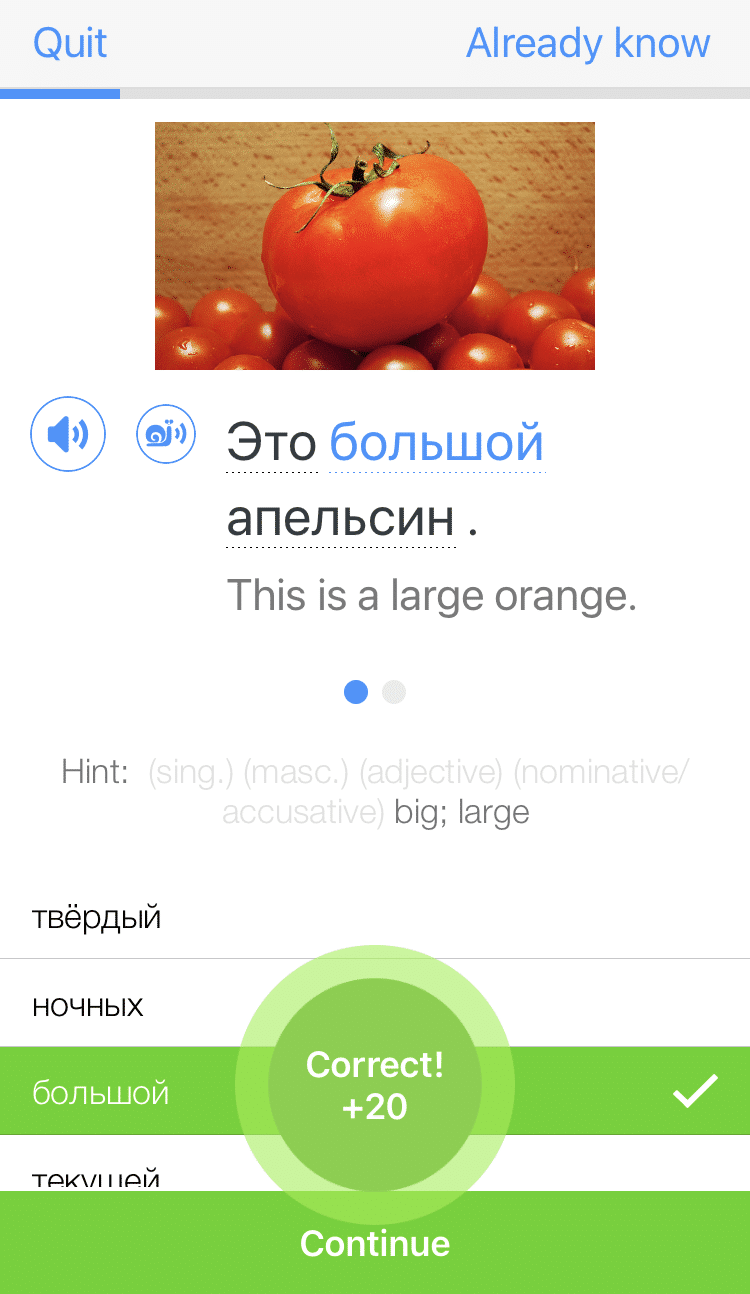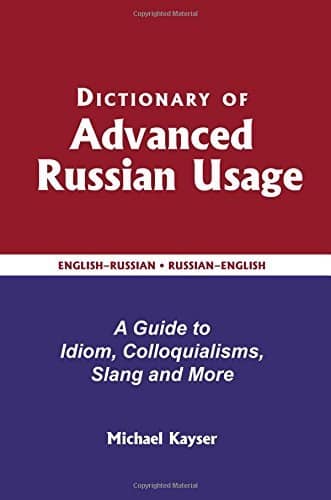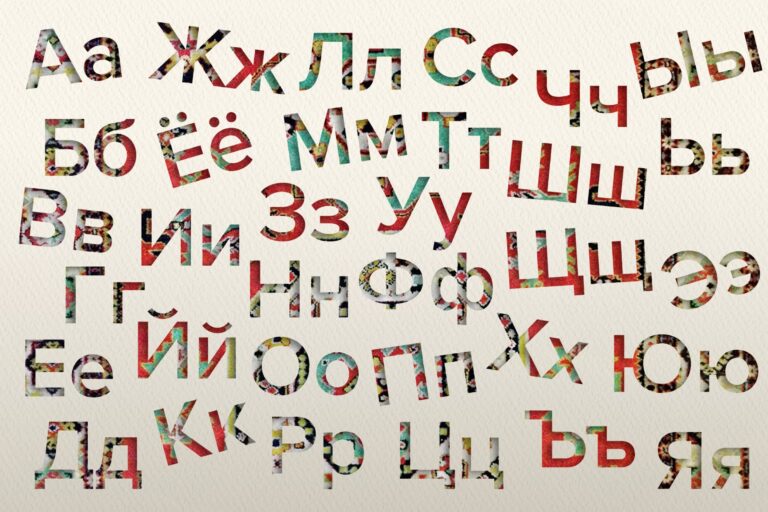20 Russian Idioms

They’re vibrant.
They’re colorful.
They’re expressive in the best possible way.
No, they’re not the latest summer fashions. They’re Russian idioms.
Idioms are groups of words whose figurative meanings don’t match their literal meanings. They’re common in any language.
In your native language, you probably don’t even notice them—they’re a dime a dozen. But when you’re studying a foreign language, you have to pay particular attention to them.
Since you probably won’t have been exposed to idioms as much as literal meanings of words, you need to study these idioms to understand their meanings.
Russian learning books and Russian textbooks are great for studying the language, but many conventional study materials barely touch on idioms, so if you want to learn Russian idioms, you might have to go back to the drawing board.
If you cut corners and just rely on those textbooks, you’ll miss the boat on valuable phrases. That’s why you need to take learning Russian idioms into your own hands.
So let’s not beat around the bush: these 20 Russian idioms will greatly improve your vocabulary!
Download: This blog post is available as a convenient and portable PDF that you can take anywhere. Click here to get a copy. (Download)
Why Learn Russian Idioms?
Idioms are commonly used. In case you didn’t notice, there were six idioms just in the introduction to this article. Idioms are just as popular in the Russian language. Russian vloggers and other sources that use colloquial language frequently use idioms. Idioms can even creep into more formal contexts. Because idioms are so commonly used, if you’re unfamiliar with them, your Russian skills will suffer.
Additionally, you need to learn idioms to understand what people mean. Lucky for you, some Russian idioms have similar literal meanings to some English idioms, so you might be able to deduce their meanings this way. However, there are also a lot of idioms with figurative meanings you would never be able to guess. If you haven’t studied these idioms, there will be plenty of situations in which you don’t understand what people mean, or, worse yet, completely misinterpret their meanings. That could lead to some very awkward interactions!
Finally, learning Russian idioms will make you sound more like a native speaker. Travel phrases will help you get around, but going a few steps past the basics will make you sound much more “in the know.” Plus, if you already have advanced Russian skills, learning idioms might be that extra step you need to take you to full fluency.
How to Learn Russian Idioms
To really master Russian idioms, you’ll want to take a multi-faceted approach.
Read them in stories, books and news articles.
Write them out with practice exercises. Try putting them into the context of an original dialogue or a vignette.
Speak them aloud. Add them to your conversations with fluent and native speakers. (You’ll quickly be able to tell from their reactions if you’re not quite grasping the meaning of these expressions!)
Listen for them in authentic native speech—whether in videos, movies, radio broadcasts, music, podcasts or the short videos on FluentU.
FluentU takes authentic videos—like music videos, movie trailers, news and inspiring talks—and turns them into personalized language learning lessons.
You can try FluentU for free for 2 weeks. Check out the website or download the iOS app or Android app.
P.S. Click here to take advantage of our current sale! (Expires at the end of this month.)
Helpful Resources for Learning Russian Idioms
In just a moment, we’ll explore 20 colorful Russian idioms. These expressions can give you a great start to your Russian idiom education—but there are thousands upon thousands of idioms in the Russian language. If you want to learn even more idioms, here are a few useful options to check out.
Master Russian
Master Russian offers a free list of idioms organized alphabetically by the first letter in the Russian phrase. This makes it a helpful tool to look up any idiomatic phrases you hear or read. However, it’s also great for perusing at your leisure.
Master Russian can introduce you to hundreds of idioms. Please note that the list includes the figurative meaning of each phrase but not its literal translation. If you would like literal translations, consider looking up each word in the phrase in a dictionary or translator. While it isn’t essential to know the literal meaning of each word, it can make idioms easy to remember.
“Russian-English Dictionary of Idioms”
The “Russian-English Dictionary of Idioms” offers nearly 14,000 comprehensive entries on various Russian idioms. Not all entries contain the exact same components, but each entry has a selection of different information including the Russian idiom, usage information, an English-language definition, any similar English phrases, a usage example, similar idioms, grammatical information and more based on what’s pertinent to that particular phrase.
Plus, “Russian-English Dictionary of Idioms” covers phrases from the 19th century to today, making it an excellent choice for anyone interested in Russian literature.
Because of its comprehensive nature and high price point, this option is best suited to serious Russian students, linguists and scholars.
“Dictionary of Advanced Russian Usage: A Guide to Idiom, Colloquialisms, Slang and More”
The “Dictionary of Advanced Russian Usage: A Guide to Idiom, Colloquialisms, Slang and More” covers idioms in addition to other nuanced words and phrases. It’s intended for translators and anyone who’s serious about the Russian language.
This dictionary is organized for easy usage—you can look up English words or phrases for their Russian equivalents and explanations or look up Russian words or phrases for their English equivalents and explanations.
20 Vivid Russian Idioms to Add Color to Your Vocabulary
1. Когда рак на горе свистнет
Literal translation: “When a lobster whistles on the top of a mountain.” However, рак can mean “lobster” or “cancer” (not at all confusing, right?), so this could also be interpreted as “When a cancer/carcinoma whistles on the top of a mountain.” Sounds festive!
Figurative meaning: “It’s never going to happen”
Similar English idiom: “When pigs fly”
“Когда рак на горе свистнет” may initially sound a little weird to native English speakers, but when you think about it, it really isn’t any stranger than “when pigs fly.” No one said idioms always make perfect sense!
2. Ни пуха ни пера
Literal translation: “Neither down nor feather”
Figurative meaning: “Good luck”
Similar English idiom: “Break a leg”
Bonus: The preferred response to this well-wish is “К чёрту!” (“To hell!”). It’s friendlier than it sounds.
If you’re casual, you might even just say “ни пуха” in place of the whole phrase and people will know what you mean. Either way, the phrase is technically wishing the recipient failure in hunting. The idea behind it is the same as “break a leg,” the hope being that wishing someone bad luck will make them have good luck.
3. Руки не доходят
Literal translation: “My hands don’t reach it”
Figurative meaning: “I can’t find the time”
Similar English idiom: None
Example:
Мне нужно убраться, но руки не доходят.
(Literal: I need to clean up, but my hands don’t reach it.)
(Figurative: I need to clean up, but I can’t find the time.)
Making excuses to avoid things is popular no matter what language you speak, so you never know when you’ll need to whip out this curious idiom!
4. Делать из мухи слона
Literal translation: “To make an elephant out of a fly”
Figurative meaning: “To exaggerate”
Similar English idiom: “To make a mountain out of a molehill”
This phrase is likely based on an old Latin proverb, and idioms about making an elephant out of a fly exist in several languages.
5. Без кота мышам раздолье
Literal translation: “Without a cat, mice will feel free”
Figurative meaning: “When an authority figure is away, those under him/her may act up”
Similar English idiom: “When the cat’s away, the mice will play”
The relationship between the very similar Russian and English idioms is unclear, but the English phrase originated between the 15th and 16th centuries and even appeared in a different form in one of Shakespeare’s plays.
6. Любовь зла, полюбишь и козла
Literal translation: “Love is evil, you may fall in love with a goat”
Figurative meaning: “You can’t control who you love”
Similar English idiom: “Love is blind”
“Любовь зла, полюбишь и козла” may be a bit hyperbolic, but the point is that you can fall in love with anyone.
7. Что посеешь, то и пожнёшь
Literal translation: “What you sow, you will reap”
Figurative meaning: “Actions have consequences”
Similar English idiom: “You reap what you sow”
If you want a little variation with this phrase, you can also say “как посеешь, так и пожнёшь.” Its meaning is nearly identical, so you can pick whatever rolls off your tongue most easily.
8. В ногах правды нет
Literal translation: “There is no truth in the legs”
Figurative meaning: “You can’t think straight while standing up”
Similar English idiom: None
Example:
Садись, и тогда поговорим—в ногах правды нет.
(Literal: Sit down, and then we’ll talk—there is no truth in the legs.)
(Figurative: Sit down, and then we’ll talk—you can’t think straight while standing up.)
You may have always trusted the veracity of legs, but apparently this was a mistake. It may sound insulting towards your legs, but it’s actually polite.
9. Взять себя в руки
Literal translation: “To take oneself in one’s hands”
Figurative meaning: “To compose oneself”
Similar English idiom: “To pull oneself together”
People can be a mess in any language. “Взять себя в руки” can be used to tell someone to compose themselves emotionally or just improve their current situation.
10. Без муки нет науки
Literal translation: “Without torture, there is no science”
Figurative meaning: “Adversity builds character”
Similar English idiom: “No pain, no gain”
Example:
Вы не получили работу? Без муки нет науки.
(Literal: You didn’t get the job? Without torture, there is no science.)
(Figurative: You didn’t get the job? Adversity builds character.)
When things are going poorly for someone, this is a helpful reminder that suffering can lead to better things.
11. с жиру бесятся
Literal translation: “(they) are furious/raving with grease”
Figurative meaning: “They don’t know how lucky they are”
Similar English idiom: “They have it too good”
You’d use this expression to describe the life of an influencer who’s nonchalantly discussing their globe-trotting vacation experiences, oblivious to their privilege.
12. молоко на губах не обсохло
Literal translation: “The milk on the lips is still wet”
Figurative meaning: “A newbie or a greenhorn”
Similar English idiom: “Wet behind the ears”
This is a reference to someone so young, they’ve just been weened—and their lips are still wet with (mother’s) milk.
It’s used to talk about someone who’s inexperienced, just like a baby.
13. кто рано встаёт, тому бог подаёт
Literal translation: “To one who wakes up early, God serves (gives)”
Figurative meaning: “Zeal will be rewarded”
Similar English idiom: “The early bird catches the worm”
Much to the dismay of night owls everywhere, the virtue of rising early is touted in this Russian idiom. Of course, the meaning is more metaphorical than literal.
So, whether you burn the midnight oil or rise with the sun, just get a head start on your work. You shall be duly rewarded for your efforts.
14. изобретать велосипед
Literal translation: “To (re)invent the bicycle”
Figurative meaning: “To start all over again; to start from scratch; to recreate something that already exists”
Similar English idiom: “To reinvent the wheel”
Whereas we would just “reinvent the wheel” in English, Russians see it as “reinventing the bicycle.”
It’s used to describe seemingly unnecessary effort.
15. в Тулу со своим самоваром
Literal translation: “To Tula with one’s own samovar”
Figurative meaning: “To bring along something unnecessary; to do something pointless”
Similar English idiom: “Coals to Newcastle”
A samovar is a special Russian vessel for brewing and serving tea.
Tula is a Russian city famous for its samovar manufacturing—so famous, in fact, it’s home to Russia’s largest Samovar Museum.
16. курам на смех
Literal translation: “To the laughter/amusement of chickens”
Figurative meaning: “A joke, ridiculous”
Similar English idiom: “Enough to make a cat laugh“
Can you picture a chicken laughing? Seems ridiculous, right?
Believe it or not, there actually is such a thing as a laughing chicken.
курам на смех is used to indicate something that’s just beyond ludicrous—almost as improbable as a guffaw from a grumpy cat.
17. рыбак рыбака видит издалека
Literal translation: “A fisherman recognizes (another) fisherman from afar”
Figurative meaning: “People recognize someone like themselves”
Similar English idiom: “Birds of a feather flock together” or “Takes one to know one”
It’s easy to spot traits similar to your own in another person—almost like looking in a mirror.
18. своя рубашка ближе к телу
Literal translation: “One’s own shirt is closer to the body”
Figurative meaning: “You must take care of your own needs first”
Similar English idiom: “Charity begins at home” or “Look out for Number One”
This idiom is used to indicate that one’s own needs are being put ahead of others’. It can sometimes be seen as selfish.
19. горе луковое
Literal translation: “Onion tragedy”
Figurative meaning: “A person, usually a child, who is reduced to tears over the tiniest, most insignificant drama”
Similar English idiom: “Poor baby” or “You poor thing”
Since cutting up onions causes many people to cry tears when they’re not sad or upset, an “onion tragedy” is a person who cries over nothing.
It’s sometimes used by parents as a tender way to console an upset child.
20. книга за семью печатями
Literal translation: “A book behind the seven seals”
Figurative meaning: “A person who is mysterious; an enigma”
Similar English idiom: The opposite of “an open book”
In the fifth chapter of the Book of Revelation in the Christian Bible, the seven seals are devices by which a sacred scroll is safeguarded.
The contents of any such book would be a complete mystery, unfathomable.
Don’t let the mystery of Russian idioms be your Achilles’ heel.
Remember these great Russian idioms to add color to your vocabulary!
Download: This blog post is available as a convenient and portable PDF that you can take anywhere. Click here to get a copy. (Download)
And One More Thing...
If you love learning Russian and want to immerse yourself with authentic materials from Russia, then I should also tell you more about FluentU.
FluentU naturally and gradually eases you into learning the Russian language and culture. You'll learn real Russian as it's spoken by real Russian people!
FluentU has a very broad range of contemporary videos. Just a quick look will give you an idea of the variety of Russian-language content available on FluentU:

FluentU makes these native Russian videos approachable through interactive transcripts. Tap on any word to look it up instantly.

Access a complete interactive transcript of every video under the Dialogue tab. Easily review words and phrases with audio under Vocab.

All definitions have multiple examples, and they're written for Russian learners like you. Tap to add words you'd like to review to a vocab list.
And FluentU has a learn mode which turns every video into a language learning lesson. You can always swipe left or right to see more examples.

The best part? FluentU keeps track of your vocabulary, and gives you extra practice with difficult words. It'll even remind you when it’s time to review what you’ve learned. You'll have a 100% personalized experience.
Start using the FluentU website on your computer or tablet or, better yet, download the FluentU app from the iTunes or Google Play store. Click here to take advantage of our current sale! (Expires at the end of this month.)































